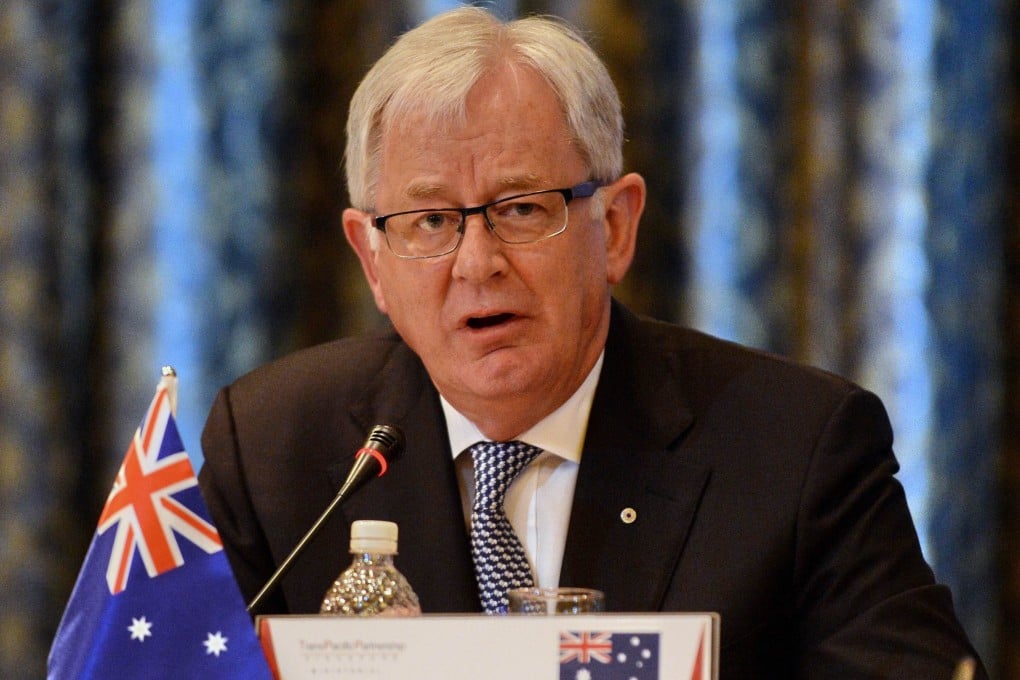China-Australia relations: suspended talks ‘unfortunate’ tit-for-tat retaliation but Canberra can ‘consider itself lucky’
- China ‘indefinitely suspended’ the China-Australia Strategic Economic Dialogue on Thursday amid ongoing tensions between Beijing and Canberra
- Former Australian trade minister Andrew Robb said it would now be difficult to resolves differences without face-to-face talks

China’s move to suspend high-level trade dialogue with Canberra will formalise the breakdown in communications between the two governments already locked in a year-long conflict and could set back any hope of reconciliation, former Australian trade minister Andrew Robb said.
Direct face-to-face communication is fundamental to beginning the rebuilding of our political relationship
“This very high-level meeting cancellation is most unfortunate,” Robb, who took part in the inaugural China-Australia Strategic Economic Dialogue in 2014, told the South China Morning Post.
“It is more and more difficult to resolve our differences if we don’t have face-to-face discussions. Direct face-to-face communication is fundamental to beginning the rebuilding of our political relationship.”
The NDRC referred to recent measures by Australian politicians “to disrupt the normal exchanges and cooperation between China and Australia out of cold war mindset and ideological discrimination” as reasons for the move.
The China-Australia Strategic Economic Dialogue is one of many bilateral meetings used to strengthen relations between the two countries, with the last meeting held in 2017.